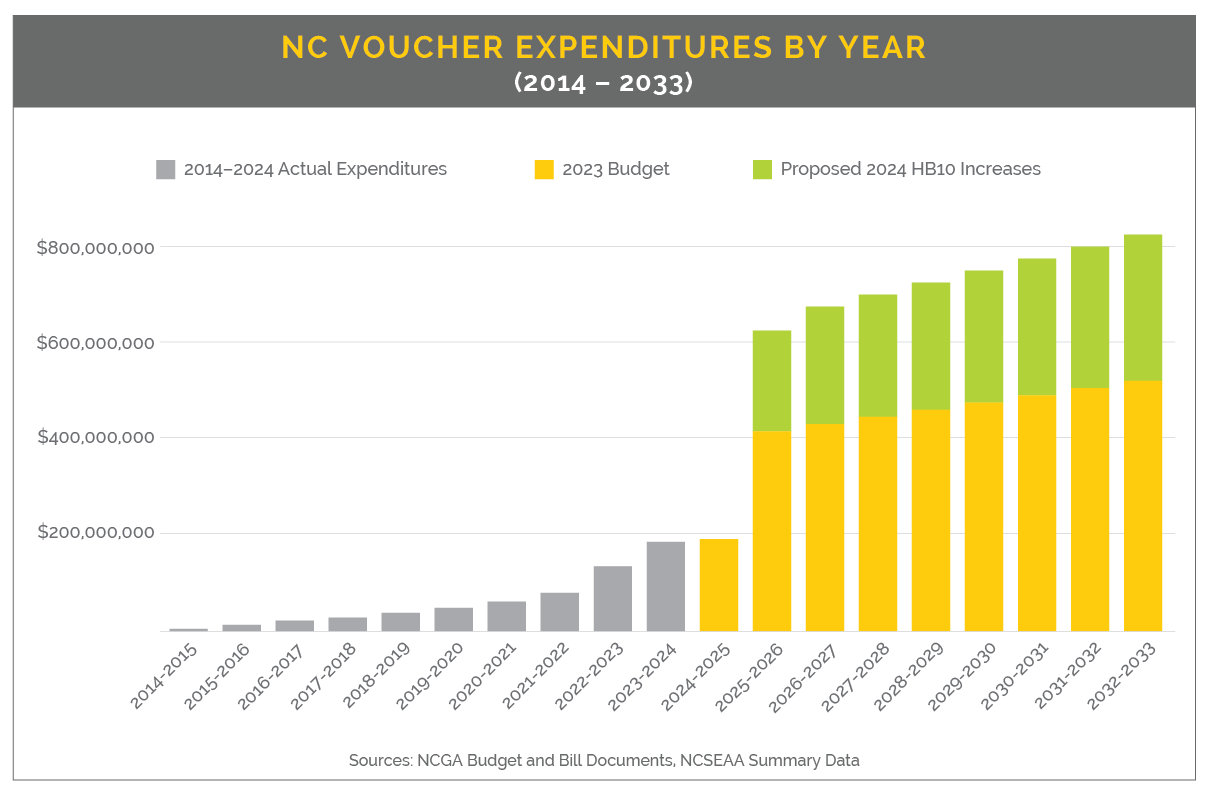By Paul Fulton
Chair, Public Ed Works
RALEIGH (December 5, 2024) – Once upon a time, North Carolina was a leader in public education.
The president of the state Chamber of Commerce was also the chair of the State Board of Education. Average teacher pay in North Carolina ranked 19th in the nation in 2001.1
Business leaders seemed to understand the connection: Strong public schools are the backbone of a strong economy and a strong democracy.
But where are we today?
Strong public schools are just as important as low taxes – maybe more so.
There’s nothing more important to attracting industry – be it pharmaceuticals, AI, EVs or whatever acronym you choose – than a sound school system, from pre-school to grad school.
As our governor likes to say, the top three priorities of the CEOs he speaks with are workforce, workforce and workforce.
A trained workforce is vital for industry and a dynamic economy. Our community colleges are a major factor in attracting industry. Yet as good as they are, we too often shortchange them.
And we embarrassingly underinvest in our K-12 public schools:
- North Carolina ranks 49th in the percentage of its economy (GDP) it devotes to K-12 public schools. We have the means, the capacity, the wherewithal to do more. We just don’t – year after year.
- North Carolina ranks 48th in per-pupil spending. Again, we can do more. But we don’t.2
- The state ranks 42nd in starting teacher pay. And it is projected to rank 41st in average teacher pay this year.3
Why? This is an embarrassment to a state that has ranked among the top two states for business for the past three years. That ranking won’t last without strong public schools.
TO BE BLUNT, the vast expansion of taxpayer dollars for private-school vouchers – $6.5 billion over the next decade4 – drains public education to send those tax dollars to private schools.
If vouchers truly offered choice to students from low-income families who encounter failing schools – as they were initially proposed – they might be a good thing. If our public schools were fully funded, vouchers might be an appealing option.
But they’re not.
And they aren’t “opportunity” scholarships anymore, now that state legislators have removed any income limits on eligibility and even offer vouchers to students who were already in private schools.
As one columnist called them, they are “welfare for the well-off.”5 And as another report pointed out, they are resegregating our schools into white private schools and public schools for the black, brown and poor.6
Is that what we want?
We invite and welcome business leaders in our state to play a bigger role in public school policy. It could not be more vital to our future.
Paul Fulton, of Winston-Salem, is a former president of Sara Lee Corp.; former dean of the Kenan-Flagler Business School; former trustee at UNC-Chapel Hill; former member of the UNC Board of Governors; and chair of Public Ed Works.
1 https://www.publicedworks.org/2018/09/k-12-2/.
2 https://edlawcenter.org/assets/MTG-2023/Making-the-Grade-23-Report.pdf.
3 https://www.newsobserver.com/news/local/education/article288227865.html.
6 https://www.propublica.org/article/segregation-academies-school-voucher-money-north-carolina.


Denita Dowell says
Thanks to Mr. Fulton for this piece. How do we get the conversation turned to include this information? Someone’s got to break through with the common sense argument he makes.